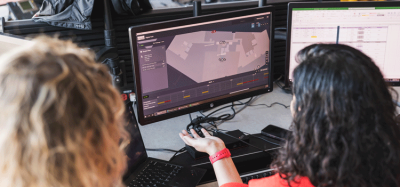Interview Spotlight: Tom Newman, Babcock International’s Director of Airports – Critical Services
- Like
- Digg
- Del
- Tumblr
- VKontakte
- Buffer
- Love This
- Odnoklassniki
- Meneame
- Blogger
- Amazon
- Yahoo Mail
- Gmail
- AOL
- Newsvine
- HackerNews
- Evernote
- MySpace
- Mail.ru
- Viadeo
- Line
- Comments
- Yummly
- SMS
- Viber
- Telegram
- Subscribe
- Skype
- Facebook Messenger
- Kakao
- LiveJournal
- Yammer
- Edgar
- Fintel
- Mix
- Instapaper
- Copy Link
Posted: 20 September 2016 | International Airport Review | No comments yet
One of the UK’s leading engineering support services, Babcock International prides itself on delivering complex and critical support to the transport and defence industries. Director of Airports – Critical Services, Tom Newman, examines the current demands in the baggage processing industry.


Tom Newman, Director of Airports – Critical Services, Babcock International
Current and predicted growth in air travel is challenging operators as to how to best develop their baggage handlings systems (BHS). From Babcock International’s perspective this has meant ensuring we have invested in having the right infrastructure and processes to meet these requirements for our clients.
Operators need to develop ever greater resilience measures with a much faster response to system failures and extremely robust and complex contingency plans. The complexity of operations has also increased with a complex mix of companies setting out to deliver the optimum solution for the customer whilst trying to protect their IPR and competing against one another for business. As a result, having the right technology isn’t enough. Another issue to consider is that some IT and control systems have become more complex with a shorter supported life, requiring more frequent replacement and highly skilled support.
Coupled with these advancements, operators are also meeting the challenges posed by upgrading Hold Baggage Screening machines to meet EU Standard 3 requirements.
How can airports benefit from deploying advanced baggage control software?
One of the greatest benefits of deploying technologically advanced software is the improved data accuracy and detail it generates. This supports more efficient operations through enabling predictive maintenance, understanding constraints and reducing waste; a greater understanding of process issues which helps to identify in system time, drivers of regular faults and capacity constraints; and better strategic decisions and performance forecasting.
How does Babcock’s range of products help with this?
Babcock works closely with its customers to integrate and manage multiple OEM systems and equipment to provide management, control, flexibility and reduce whole-life cost.
Our teams build and upgrade BHS using systems and equipment supplied both by us and other OEMs to ensure flexibility, resilience and operational effectiveness. We are skilled in integrating with existing systems and equipment, such as installing our SAC BagNav into BHS that have plant and control systems provided by other OEMs. We carry this out in ways that minimise risk and downtime.
Our systems are highly configurable, so operators can make changes in the way that the system behaves, based on learning from day-to-day operations.
To mitigate any niggles in upgrading software we have developed excellent capabilities in system simulation and emulation that allow us to test upgrades thoroughly before deploying to the live system. We can also model and demonstrate these to the client, working together, to find optimal solutions.
Is it important for airports to move away from traditional reliance on OEM-developed systems?
OEMs do a great job in delivering new technologies and approaches. However using an OEM-developed system can be costly longer term as it restricts future flexibility in choosing equipment and systems. That’s why we have implemented control systems that enable flexibility and the ability to easily switch suppliers to reduce costs and take advantage of new technologies.
In delivering an O&M service, we also work closely with systems’ OEMs to challenge often costly support contracts and drive better value from their support.
How has Babcock’s ICT service been received in the industry to date?
Our IT service delivers value to customers around the world including a full service to Heathrow Airport as part of our support to all five terminal baggage systems. Our baggage system design and controls expertise has allowed Heathrow to move away from the incumbent OEM supplier to carry out the Terminal 5 HBS Standard 3 upgrades.
Our SAC BagNav is used around the world and integrated to a wide range of different OEM’s systems at airports including Gatwick, Edinburgh, Vancouver and Dubai.
How can you see this solution progressing in the future?
The solution enables OEMs to concentrate on what they do best:
- Developing new technology and installing new systems. It also allows integrators and smaller suppliers the ability to support system development and offer a suitable and flexible alternative for airports
- Delivering long term value and improved system performance for the benefit of airports, airlines and most importantly passengers
Biography
Tom Newman has been Director of Airports within Babcock International Group’s Critical Services remit, since October 2012.
He is in charge of leading Babcock’s airports business which includes managing site locations at Heathrow, Gatwick, Edinburgh, Leicester and Amsterdam Schiphol in capabilities including: operation and maintenance of the London Heathrow baggage system; fleet management of ground support equipment for British Airways at London Heathrow; fleet management of critical airside vehicles for Heathrow Airport; and maintenance of Amsterdam Schiphol’s baggage system and delivery of baggage system improvements at Heathrow, Stansted and other airports in North America and the Middle East.
On 8 September 2016, Babcock announced a five year contract win with Qantas to deliver a programme to improve reliability of equipment and provide significant long term capability and cost benefits.


















